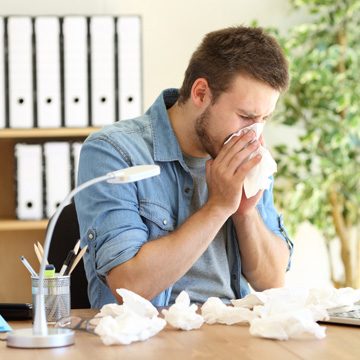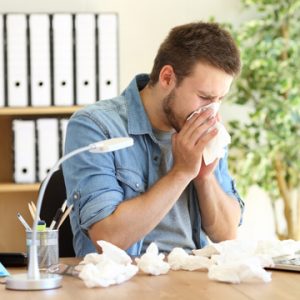
 San Francisco, Marin, and Oakland, CA
San Francisco, Marin, and Oakland, CA
Does it seem as if you are always sick? Do you get over a cold or illness, and then contract another one soon thereafter? Your inability to get well may be tied to your sleep patterns. Scientific research continues to establish a link between sleep deprivation and the impeded function of the immune system. Your sleep apnea dentists in San Francisco at Glen Park Dental want to explore this issue in greater detail.
When you sleep well, your immune system gets stronger
During the deepest stage of the sleep cycle, your body produces proteins that are crucial to the operation of your immune system. These proteins serve as valuable protection against stress and inflammation, while also helping your immune system in neutralizing bacteria and viruses that enter your body before they can make you sick or cause an infection.
As mentioned earlier, research has shown that failing to get proper sleep affects your body’s ability to generate these proteins and fight off sickness. In fact, a 2017 study by the Medicine Sleep Center at the University of Washington in Seattle examined 11 pairs of identical twins who had differing sleep patterns. The findings, which were published in the January 2017 edition of Sleep, determined that in each case the twin with sleep deprivation showed symptoms of both a depressed immune system as well as an increased inflammatory response.
You can take steps to improve your sleep
The Centers for Disease Control and Prevention advise that adults between the ages of 18 and 60 are recommended to get an average of seven hours of sleep each night. However, this is easier said than done for many people. If you have trouble getting to sleep or staying asleep, start by making changes to your sleeping environment. Suggested changes include making your bedroom as dark as possible, setting the thermostat so that the temperature of the room rests between 60 and 67 degrees, minimizing any sort of screen time before going to bed, reserving your bedroom solely for sleep, and avoiding alcohol or caffeine.
For millions of Americans, difficulties with sleep have nothing to do with their environment. These people are living with obstructive sleep apnea, which affects an estimated 22 million Americans, according to data compiled by the American Sleep Apnea Association. A patient with sleep apnea experiences a blockage of the airway during sleep. These blockages might be partial, making it more difficult to breathe, or complete, totally stopping the flow of air. When these blockages happen, the sleep cycle is disrupted, even if you never consciously wake. This deprives you of the mental and physical restoration that takes place during the deepest stage of sleep, including the production of the proteins to bolster the immune system.
Sleep apnea treatment in Oakland
At Glen Park Dental, our staff includes multiple dentists who treat sleep apnea in San Francisco. They have unique training to identify this sleep breathing disorder and then provide treatment by addressing the root of the problem: the airway issue that is disrupting your ability to rest. Sleep apnea is identified through either an airway evaluation or a sleep study. Once the disorder is detected, your sleep apnea dentists in Oakland can provide treatment—preferably through a course of oral appliance therapy, which gives the patient a mouthpiece to wear during sleep that keeps the lower jaw in the ideal forward resting position and maintains an open airway throughout the night.
If you or someone you love has been living with sleep loss for a prolonged period of time, their health is at risk, and they may be getting sick more often from having a suppressed immune system. Schedule an evaluation to determine if sleep apnea is present by calling (415) 585-1500.
Glen Park Dental serves the comprehensive oral health needs of patients in Marin, Oakland, and San Francisco, California.


